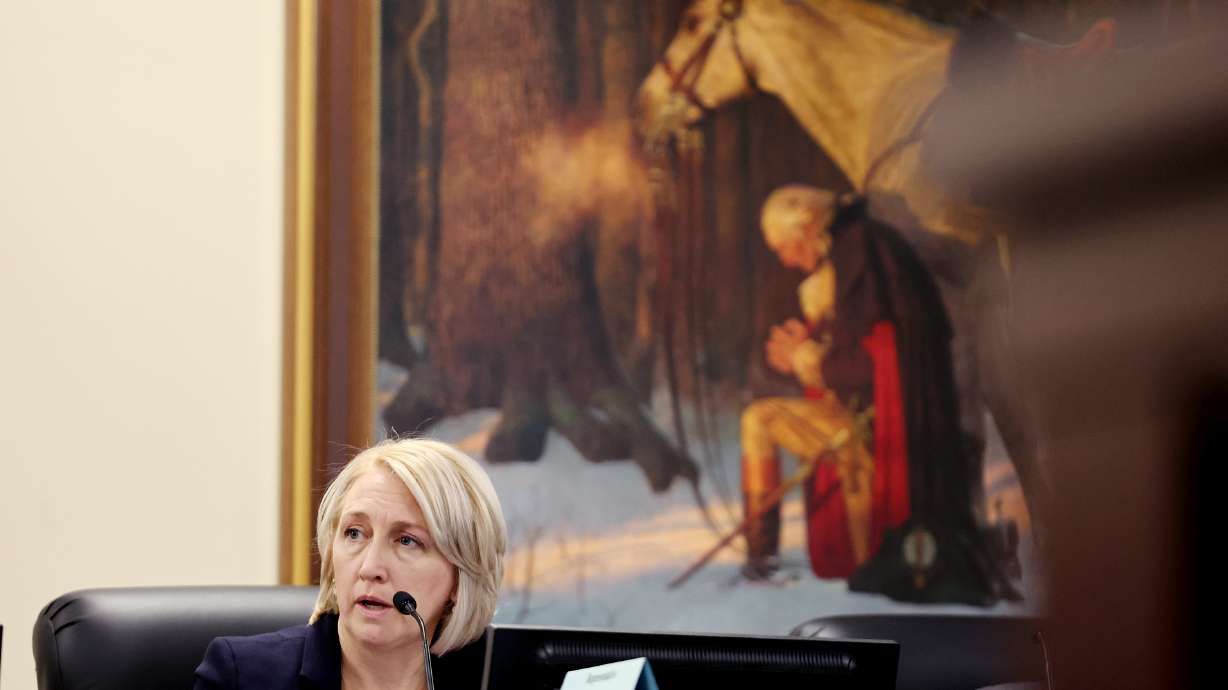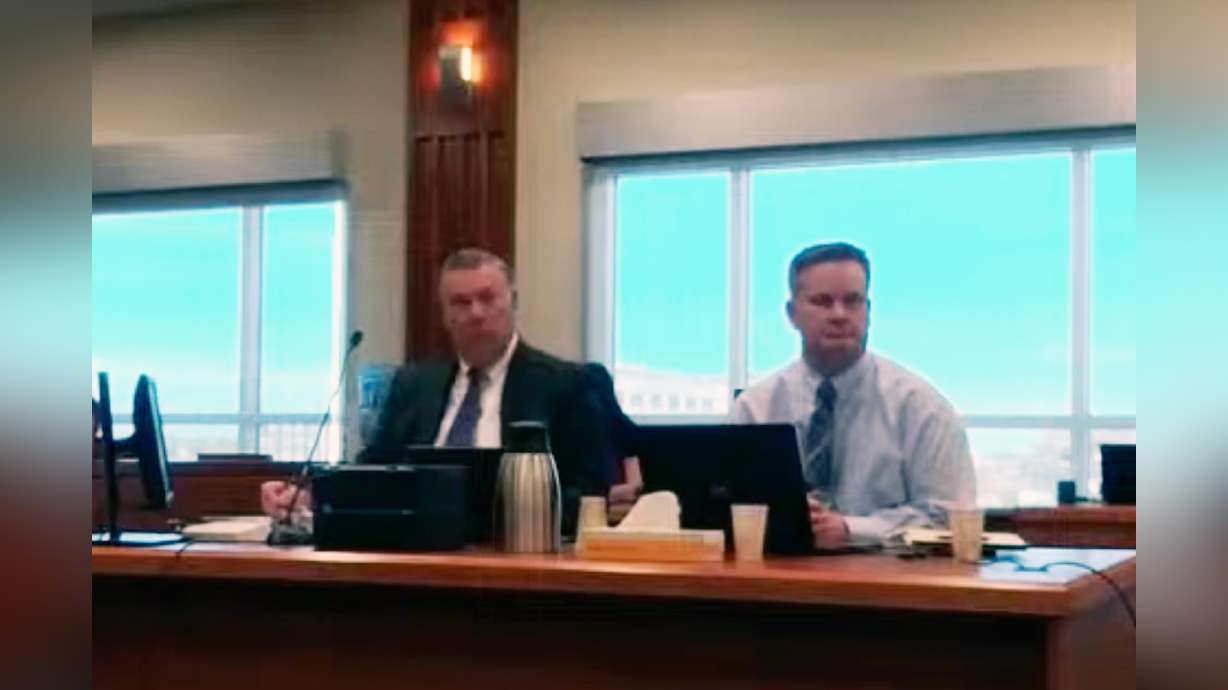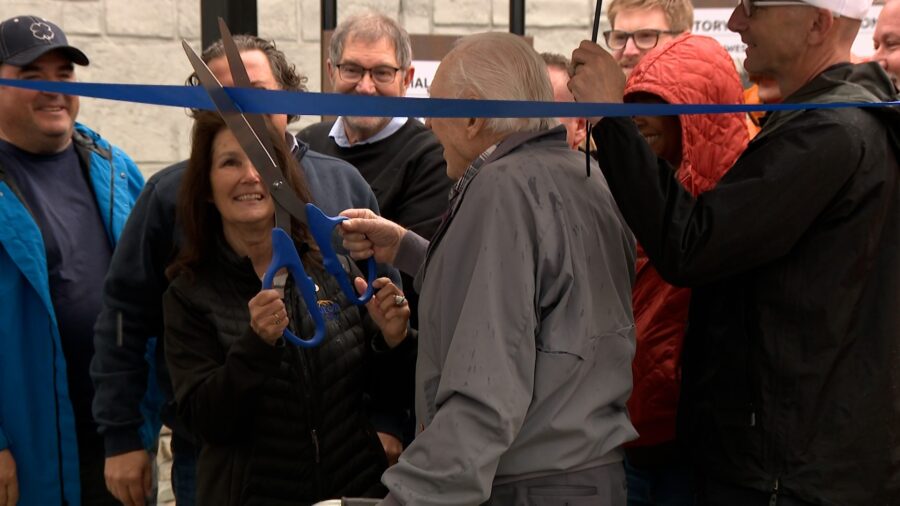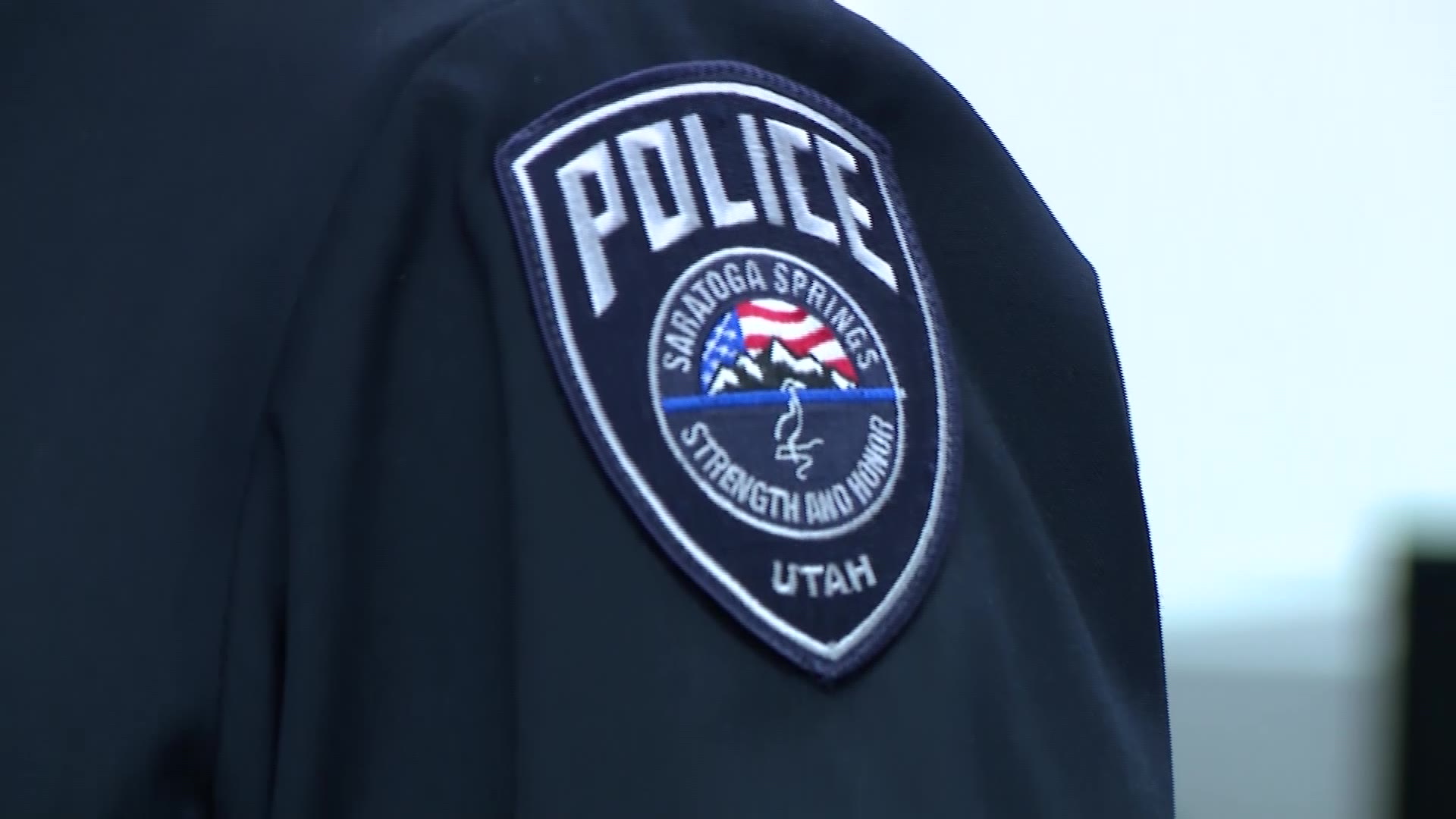House passes bills to further restrict abortion access in Utah
Feb 18, 2023, 1:35 PM

Rep. Karianne Lisonbee, R-Syracuse, asks a question to Rep. Kera Birkeland, R-Morgan, during discussion on HB297 in the House Judiciary committee at the Capitol on Wednesday. (Scott G Winterton, Deseret News)
(Scott G Winterton, Deseret News)
SALT LAKE CITY — The Utah House of Representatives passed two bills that would make it harder to obtain abortions in the state on Friday.
The first, HB467, is the most restrictive abortion bill to come up since the U.S. Supreme Court overturned the right to an abortion in June 2022. Originally, it would have shuttered all abortion clinics in the state and required that abortions be performed in hospitals with limited exceptions, but it was amended to prohibit the licensing of clinics that only perform elective abortions.
HB297 would expand services for rape victims but also strengthen an existing law requiring that medical providers verify a rape victim reported their rape to law enforcement prior to performing an abortion.
Both bills would also completely remove Utah’s rape and incest exemption after 18 weeks of pregnancy.
Utah’s trigger law that would ban nearly all abortions is on hold while the Utah Supreme Court weighs whether it’s constitutional or not. Lawmakers approved a resolution to make it easier to end the hold on the law earlier this week.
Abortions are legal in Utah through 18 weeks of pregnancy while the trigger ban remains held up in court.
In protest of Utah’s abortion laws, the Alliance for a Better Utah announced it would hand out condoms to NBA All-Star weekend fans, bearing the slogan “Be careful while you’re here. Abortion in Utah is about to get harder.”
Sponsor says bill won’t close clinics
Opponents of HB467, sponsored by Rep. Karianne Lisonbee, R-Clearfield, say that it would make even legal abortions more expensive, in effect putting care out of reach for low-income women who may qualify for an exemption.
Lisonbee introduced a substitute version of the bill late Friday afternoon, saying it “unlicenses” clinics that exist specifically to perform elective abortions but would allow clinics like Planned Parenthood to perform other services, as well as abortions that are allowed under the trigger law’s exemptions.
The substitute version specifies that girls under the age of 14 would be presumed to be victims of rape or incest if they are seeking an abortion because they are under the age of consent. It also prohibits out-of-state providers from prescribing drugs to Utahns for the purpose of causing an abortion.
“As a state, we deeply value human life at all stages and in all circumstances,” Lisonbee said. “It is the state’s responsibility to protect the most vulnerable, and that includes the unborn.”
Rep. Brian King, D-Salt Lake City, argued that the bill would still make abortions cost more for women, who would have fewer options for accessing abortions.
Rep. Brady Brammer, R-Highland, said he talked with the Planned Parenthood Association of Utah recently, and doesn’t believe HB467 would force it to close its doors. He said elective abortions account for only 3% of the organization’s services, and about 9% of its revenue.
“Based on that communication, I don’t believe that any clinics that are providing any of the services to women will close, merely because that revenue is no longer available — at a loss of 9% of revenue and 3% of services,” he said.
The Planned Parenthood Action Council of Utah confirmed Brammer’s statistics in a tweet but said its “concern isn’t our bottom line. It’s ensuring that Utahns keep access to safe, accessible and affordable health care. HB467 endangers that.”
Lisonbee agreed with Brammer, saying clinics could apply to be licensed for abortions under the exemptions afforded in the trigger law and continue to provide other family-planning services.
“We in Utah have a long-standing tradition — since before statehood — of protecting the unborn by outlawing abortion,” she said. “We have compassionate exemptions, and we have compassionate law and services for women who find themselves in a situation, and we as a state ought to support them in making the decision that they need to make. That’s what this bill does, in a compassionate and thoughtful way.”
In a statement after HB467 passed along party lines, the House Democratic Caucus called the bill “a direct attack on reproductive health care.”
“This bill, which purports to be ‘pro-life,’ in fact, is not,” the Democrats stated. “These health centers are critical providers of care for Utahns. They serve an important role in our communities, offering safe, accessible and affordable services to those who need them.”
Rape survivor services and reporting
Rep. Kera Birkeland, R-Morgan, is the sponsor of HB297. Her younger sister, Samantha Hansen, has been a vocal opponent of Birkeland’s bill. Hansen, who was drugged and raped in 2014, calls the bill “absolutely cruel to rape survivors.”
“My sister is trying to force women to heal the way she thinks they should heal,” Hansen told Deseret News. “She’s trying to package it up as a survivor’s bill. And as a survivor, it is not.”
HB297 specifies that when a rape victim calls a sexual assault hotline, he or she would be provided with information on how to access free emergency contraception and how to report the rape to police. It would also require law enforcement officers to spend at least one hour per year training on sexual assault investigations and responding to sexual trauma, and allow sexual assault victims who become pregnant to receive health care during the pregnancy and up to one year after giving birth.
An earlier version of the bill would have required the woman receiving an abortion to provide “a copy of the case report by the applicable law enforcement agency” to physicians, or have the physician “sign a certification that the woman reported to law enforcement.”
During a committee hearing earlier this week, Birkeland amended the bill to simply require the physician performing the abortion to “maintain an accurate record as to the manner in which the physician conducted the verification.”
Birkeland introduced her bill on the House floor Friday, and stressed that it doesn’t add a reporting requirement to Utah law; rather, it addresses how physicians can very that a rape was reported.
“Victims of rape already had their choice taken away from them when they were raped,” Birkeland said. “This bill does not take their choice (to report or not) away from them.”
Several Democrats expressed concern with the bill — and the reporting provision in general — due to the low rate of women who report being sexually assaulted. King called the rate of reporting “abysmal,” and said HB297 would decrease the number of assaults that are reported because it would force women to go to police if they want to be able to access abortion care in the future.
Rep. Jennifer Dailey-Provost, D-Salt Lake City, said the bill comes from the perspective of police, not from the perspective of women who may be afraid to report.
“It doesn’t incorporate the voice of women who are frightened of reporting,” she said.
Lisonbee said Birkeland had gone through “great efforts” to make sure the bill meets the needs of survivors.
“The point of this bill is to prevent future sexual assaults,” she said.
Birkeland also highlighted the provision that requires health care for rape victims who become pregnant.
“I believe that the great people in this state, they’re not just pro-birth, they’re pro-life,” she said.
HB297 ultimately passed 53-14 on party lines, and will head to the Senate.













